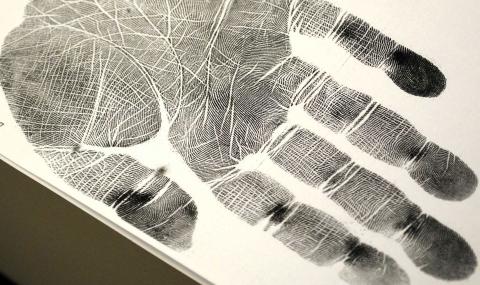
The US-based Edo United for Homeland Empowerment, a human rights group with headquarters in Boston, has urged the Nigerian government to institute a nation-wide registration to collect the fingerprint of all Nigerian citizens and residents. Such an exercise, the group contended, would become a critical component of measures to fight widespread crimes in Nigeria, including terrorism and kidnapping.
Edo United made the call following a meeting over the weekend to review the outcome of the recently concluded Nigeria Security Summit in Cambridge, Massachusetts.
The summit, which took place on August 8, 2014 at Harvard University, featured presentations by former Harvard professor, Robert Rothberg, Nigeria’s US Ambassador, Adebowale Ibidapo Adefuye, Nigeria’s National Security Advisor, Sambo Dasuki, novelist and columnist Okey Ndibe, and Nimi Wariboko, a professor of Christian ethics at Andover Newton Theological School. The summit focused on Nigeria’s myriad and lingering security crises.
A large number of the members of Edo United for Homeland Empowerment participated at the summit along with members of other civil society groups.
In its communiqué, Edo United stated that the security provided a useful forum for Nigerians to air their views and raise pertinent questions aimed at finding solutions for their country’s security challenges. The communiqué noted Mr. Dasuki’s outline of efforts by the Nigerian government to combat terrorism, but urged the government to explore the use of available high technology in the battle against rampant insecurity in Nigeria.
Signed by its president, Frank Ekhator, its vice president Dickson Iyawe and its secretary, Mrs. Omolayo Omoruyi-Ukhuedoba, the statement noted that Nigeria’s “complex and evolving security threats require modern intelligence-driven solutions and forensic investigation to keep pace or stay ahead of sworn enemies of the nation.”
The group added that the task of protecting Nigeria was “becoming daunting as terrorists and other criminal elements are growing more sophisticated by the day; and without reengineering our approach to crime prevention and control, there is no way the Nigerian government can win the war against insurgency and other crimes.”
Edo United condemned as myopic recent calls on the Kaduna State House of Assembly to pass a bill requiring the registration of southerners in the North, and an earlier suggestion by some southeast governors that northerners in their states should be registered. Instead of such parochial and polarizing actions, Edo United called for concerted efforts by all Nigerians and governments to fight the country’s common enemies.
“A terrorist threat in the North must be seen as a threat to the South and vice versa—something needing a collective solution for our collective security as a people,” the organization said in the communiqué.
It criticized those who make religious-based inflammatory statements for ethnic, sectional, and political purposes, describing them as inimical to Nigeria’s interests.

Noting that the absence of a national database was a key factor in Nigeria’s inability to detect criminal activities, Edo United added, “Even the presence of the U.S. Special Forces in Nigeria today has done little to change the insecurity in the country because we lack basic security infrastructure, including a national database.” It argued that “Nigeria is overdue for a national fingerprint database to match extracted fingerprint from crime scenes, but this cannot be done without a national registration of citizens and other people living in the country.”
The group stated that the ability of the US and many other Western nations to fight crime and provide adequate security for their citizens underscored the importance of deploying crime-fighting technology.
The group reminded the Nigerian government that advanced technological equipment exists with which to proactively fight crime, instead of waiting for crimes to happen before responding. Edo United remarked that there were a wide range of technological innovations that can be applied to crime investigation, prevention and control, adding that fingerprint evidence was becoming a more powerful as it can now be crosschecked electronically with the database.
The organization drew the Nigerian government’s attention to the new Automated Fingerprint Identification System (AFIS) that is able to identify criminals even years after they committed their crimes by searching through thousands of fingerprints on database to match a perpetuator’s latent print taken from a crime scene within two hours of the commission of a crime.
Edo United remarked that the war on terror and other crimes demands political will on the part of the government to confront the enemies both from within and without, adding that such a resolve was lacking at the moment. It stated that the absence of political will was responsible for the Nigerian government’s failure to assemble a potent strike force “to rout out a rag-tag insurgency, and kidnappers who are making life unbearable for Nigerian citizens and visitors.”
It wondered why, despite Nigeria’s enormous security problems, the country had not engaged or embraced the use of modern IT-based security digital video surveillance to fight criminal activities, including terrorism and kidnapping.